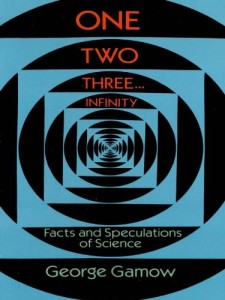The Infinite Hotel Paradox: A Brilliant Animated Thought Experiment to Help You Grasp the Mind-Bending Concept of Infinity
SCIENCE, 10 Apr 2017
Maria Popova | Brain Pickings – TRANSCEND Media Service
What a hospitable night manager can do for our finite human minds.
 “Infinity is a demented concept,” astrophysicist Janna Levin, who studies the finitude of the universe, wrote in her spectacular diary-turned-book about the universe. Infinity is also a dementing concept. Most of us find it oddly hard, impossible even, to actually wrap our minds around it and envisage a thing — for it can’t really be a number, can it? — to which we can’t simply add something else to produce infinity-plus-one, instantly rendering “infinity” finite.
“Infinity is a demented concept,” astrophysicist Janna Levin, who studies the finitude of the universe, wrote in her spectacular diary-turned-book about the universe. Infinity is also a dementing concept. Most of us find it oddly hard, impossible even, to actually wrap our minds around it and envisage a thing — for it can’t really be a number, can it? — to which we can’t simply add something else to produce infinity-plus-one, instantly rendering “infinity” finite.
To help ordinary humans tussle with this extraordinary concept, German mathematician David Hilbert conceived of what is now known as the Infinite Hotel Paradox — a brilliant and mind-bending specimen of that neat intersection of science and philosophy: the thought experiment. Hilbert came up with the Infinite Hotel Paradox in 1924, but it was popularized only after his death by Russian-American theoretical physicist George Gamow’s 1947 book One Two Three… Infinity: Facts and Speculations of Science (public library).
This illuminating short animation from TED-Ed, written by Jeff Dekofsky, brings the famous thought experiment to life — fasten your neurons:
For other stimulating TED-Ed animations, see how a dog actually “sees” the world through smell, why music benefits your brain more than any other activity, how to spot liars, and why bees build perfect hexagons.
__________________________
 Brain Pickings is the brain child of Maria Popova, an interestingness hunter-gatherer and curious mind at large obsessed with combinatorial creativity who also writes for Wired UK and The Atlantic, among others, and is an MIT Futures of Entertainment Fellow. She has gotten occasional help from a handful of guest contributors.
Brain Pickings is the brain child of Maria Popova, an interestingness hunter-gatherer and curious mind at large obsessed with combinatorial creativity who also writes for Wired UK and The Atlantic, among others, and is an MIT Futures of Entertainment Fellow. She has gotten occasional help from a handful of guest contributors.
Go to Original – brainpickings.org
DISCLAIMER: The statements, views and opinions expressed in pieces republished here are solely those of the authors and do not necessarily represent those of TMS. In accordance with title 17 U.S.C. section 107, this material is distributed without profit to those who have expressed a prior interest in receiving the included information for research and educational purposes. TMS has no affiliation whatsoever with the originator of this article nor is TMS endorsed or sponsored by the originator. “GO TO ORIGINAL” links are provided as a convenience to our readers and allow for verification of authenticity. However, as originating pages are often updated by their originating host sites, the versions posted may not match the versions our readers view when clicking the “GO TO ORIGINAL” links. This site contains copyrighted material the use of which has not always been specifically authorized by the copyright owner. We are making such material available in our efforts to advance understanding of environmental, political, human rights, economic, democracy, scientific, and social justice issues, etc. We believe this constitutes a ‘fair use’ of any such copyrighted material as provided for in section 107 of the US Copyright Law. In accordance with Title 17 U.S.C. Section 107, the material on this site is distributed without profit to those who have expressed a prior interest in receiving the included information for research and educational purposes. For more information go to: http://www.law.cornell.edu/uscode/17/107.shtml. If you wish to use copyrighted material from this site for purposes of your own that go beyond ‘fair use’, you must obtain permission from the copyright owner.
Wonderful!!!!!!